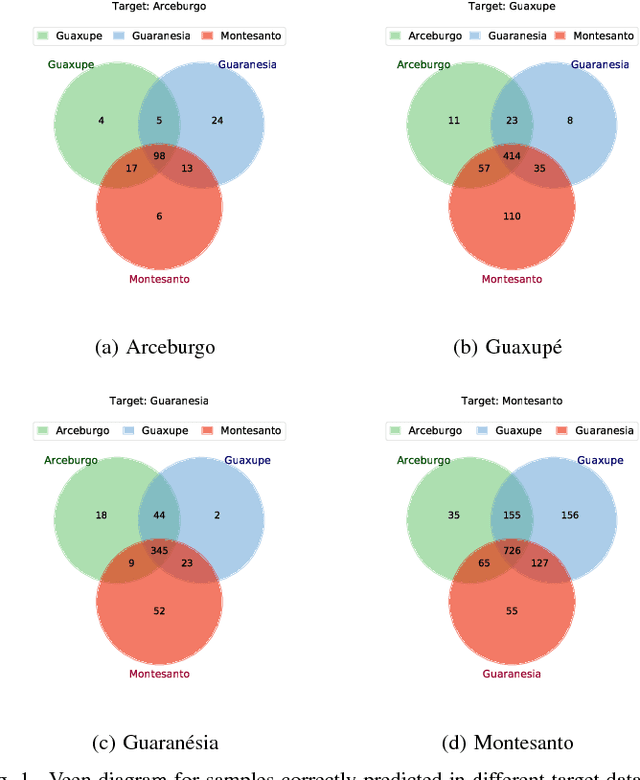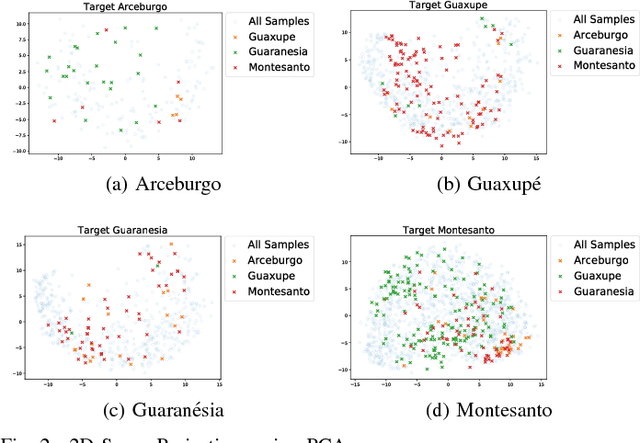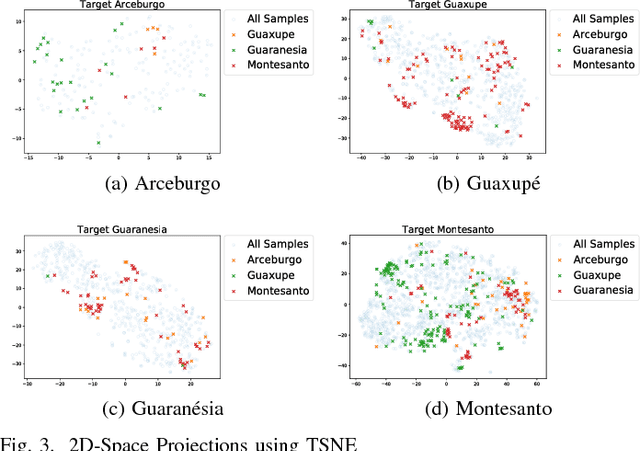A Comparative Study on Unsupervised Domain Adaptation Approaches for Coffee Crop Mapping
Paper and Code
Jun 06, 2018



In this work, we investigate the application of existing unsupervised domain adaptation (UDA) approaches to the task of transferring knowledge between crop regions having different coffee patterns. Given a geographical region with fully mapped coffee plantations, we observe that this knowledge can be used to train a classifier and to map a new county with no need of samples indicated in the target region. Experimental results show that transferring knowledge via some UDA strategies performs better than just applying a classifier trained in a region to predict coffee crops in a new one. However, UDA methods may lead to negative transfer, which may indicate that domains are too different that transferring knowledge is not appropriate. We also verify that normalization affect significantly some UDA methods; we observe a meaningful complementary contribution between coffee crops data; and a visual behavior suggests an existent of a cluster of samples that are more likely to be drawn from a specific data.
 Add to Chrome
Add to Chrome Add to Firefox
Add to Firefox Add to Edge
Add to Edge